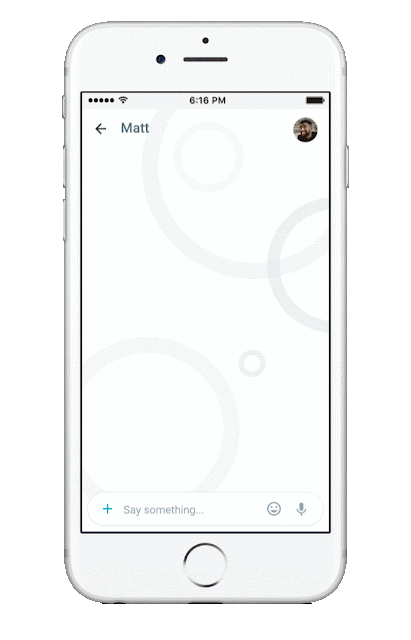Google Allo, the new chat app launched today on iOS and Android that inserts AI into your conversations, is the equivalent of state surveillance and should be avoided, according to whistleblower Edward Snowden.
The ex-NSA contractor made a series of Tweets on Wednesday morning about Allo’s policies to store user messages and advised followers to not use the new application.
What is #Allo? A Google app that records every message you ever send and makes it available to police upon request. https://t.co/EdPRC0G7Py
— Edward Snowden (@Snowden) September 21, 2016
Free for download today: Google Mail, Google Maps, and Google Surveillance. That's #Allo. Don't use Allo. https://t.co/EdPRC0G7Py
— Edward Snowden (@Snowden) September 21, 2016
At the heart of Snowden’s criticism of Allo is a reversal of Google’s message retention policy, according to The Verge, the publication Snowden links to in his tweet. When the app was unveiled by Google earlier this summer, Eric Kay, director of engineering of communications products at Google, told The Verge that all messages would only be stored on Google’s servers temporarily, and not stored. But now it’s clear that only messages made in “incognito mode” will be deleted off Google’s servers, and the default of normal messages will see them stored. That leaves them open to be retrieved by police via a warrant, or possibly a simple request made to Google.
Google said that storing conversations helps its machine learning algorithms learn how to be more helpful in conversations. One of the main functions of the chat app is to include Google search results – such as for sports scores, or local restaurants – and have all the participants in the chat see them and talk about them. Allo also uses its AI to give you suggested replies to messages.
Google’s animated GIF illustrates this feature:

When asked for a response to Snowden’s assertions on Wednesday morning, Google provided ITBusiness.ca with this statement:
“We’ve given users transparency and control over their data in Google Allo. And our approach is simple — your chat history is saved for you until you choose to delete it. You can delete single messages or entire conversations in Allo. We also provide the option to chat in Incognito mode, where messages are end-to-end encrypted and you can set a timer to automatically delete messages on your device, and the recipient’s, at a set time.”
Google publishes an annual transparency report, detailing how often governments and courts ask it to provide user data. In the last six months of 2015, 60 requests were made of Google in Canada for information and some data was provided as a result of those requests in 52 per cent of cases, according to the latest report. The most requests for user information are made in the U.S., where Google also provides some data on the number of Foreign Intelligence Surveillance Act requests it receives, though the data is released after a six-month delay and in a range of 500. Between January and June of 2015, Google says it received 0-500 “non-content requests” under this act, and between 500-999 “content” requests.
Snowden lives in Russia and is a U.S. fugitive after he revealed classified information about NSA surveillance programs that included PRISM, which accessed user content held by Google, among other major tech brands.
Snowden is also the subject of Oliver Stone-directed major motion picture Snowden, which was released in theatres this month.
Aside from warning users away from Allo this morning on Twitter, he offered endorsements for a couple of other communications apps:
Use Tor. Use Signal. https://t.co/VLvBsbVHKs
— Edward Snowden (@Snowden) September 21, 2016





